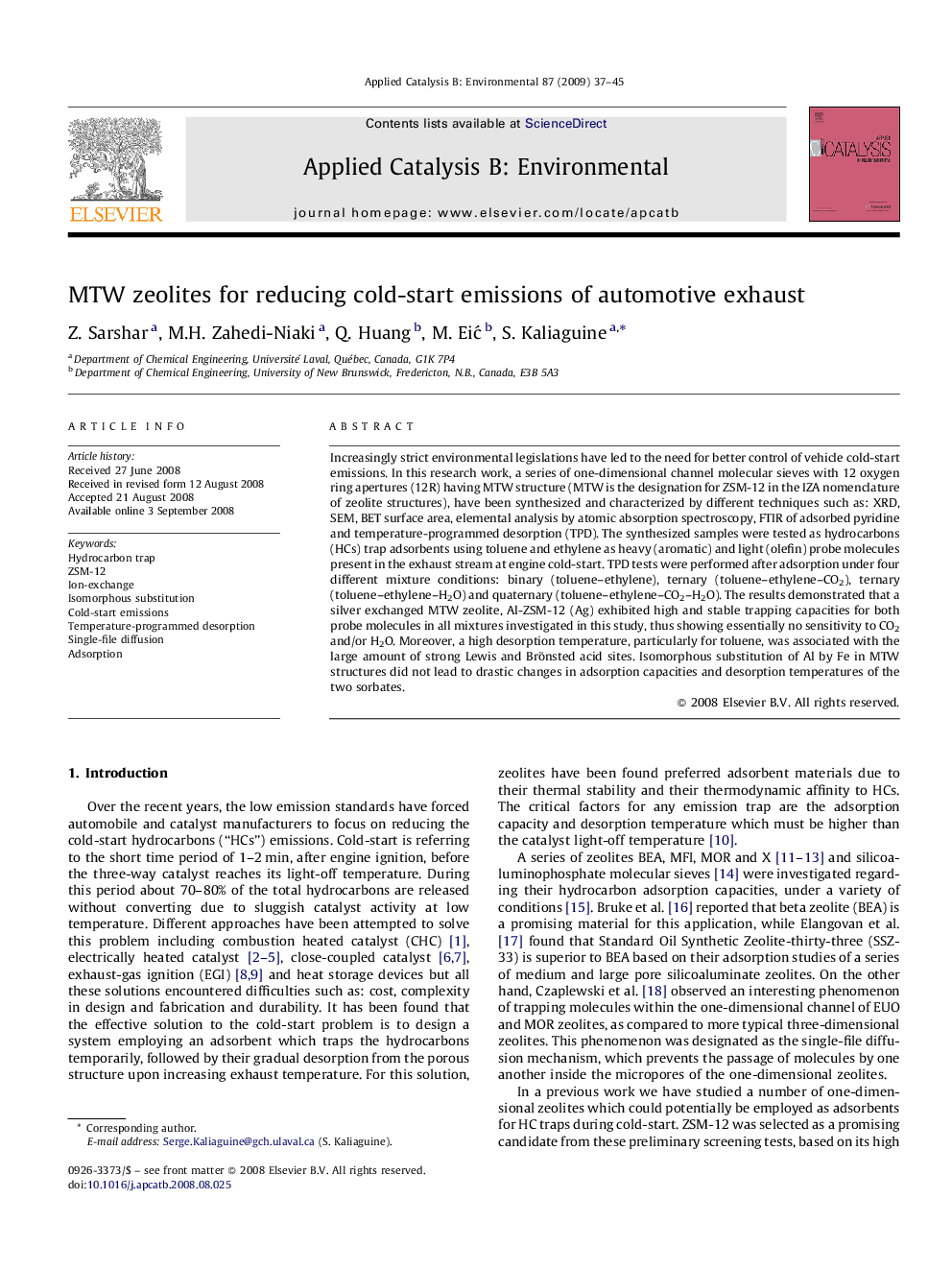| کد مقاله | کد نشریه | سال انتشار | مقاله انگلیسی | نسخه تمام متن |
|---|---|---|---|---|
| 48107 | 46493 | 2009 | 9 صفحه PDF | دانلود رایگان |

Increasingly strict environmental legislations have led to the need for better control of vehicle cold-start emissions. In this research work, a series of one-dimensional channel molecular sieves with 12 oxygen ring apertures (12R) having MTW structure (MTW is the designation for ZSM-12 in the IZA nomenclature of zeolite structures), have been synthesized and characterized by different techniques such as: XRD, SEM, BET surface area, elemental analysis by atomic absorption spectroscopy, FTIR of adsorbed pyridine and temperature-programmed desorption (TPD). The synthesized samples were tested as hydrocarbons (HCs) trap adsorbents using toluene and ethylene as heavy (aromatic) and light (olefin) probe molecules present in the exhaust stream at engine cold-start. TPD tests were performed after adsorption under four different mixture conditions: binary (toluene–ethylene), ternary (toluene–ethylene–CO2), ternary (toluene–ethylene–H2O) and quaternary (toluene–ethylene–CO2–H2O). The results demonstrated that a silver exchanged MTW zeolite, Al-ZSM-12 (Ag) exhibited high and stable trapping capacities for both probe molecules in all mixtures investigated in this study, thus showing essentially no sensitivity to CO2 and/or H2O. Moreover, a high desorption temperature, particularly for toluene, was associated with the large amount of strong Lewis and Brönsted acid sites. Isomorphous substitution of Al by Fe in MTW structures did not lead to drastic changes in adsorption capacities and desorption temperatures of the two sorbates.
Journal: Applied Catalysis B: Environmental - Volume 87, Issues 1–2, 16 March 2009, Pages 37–45